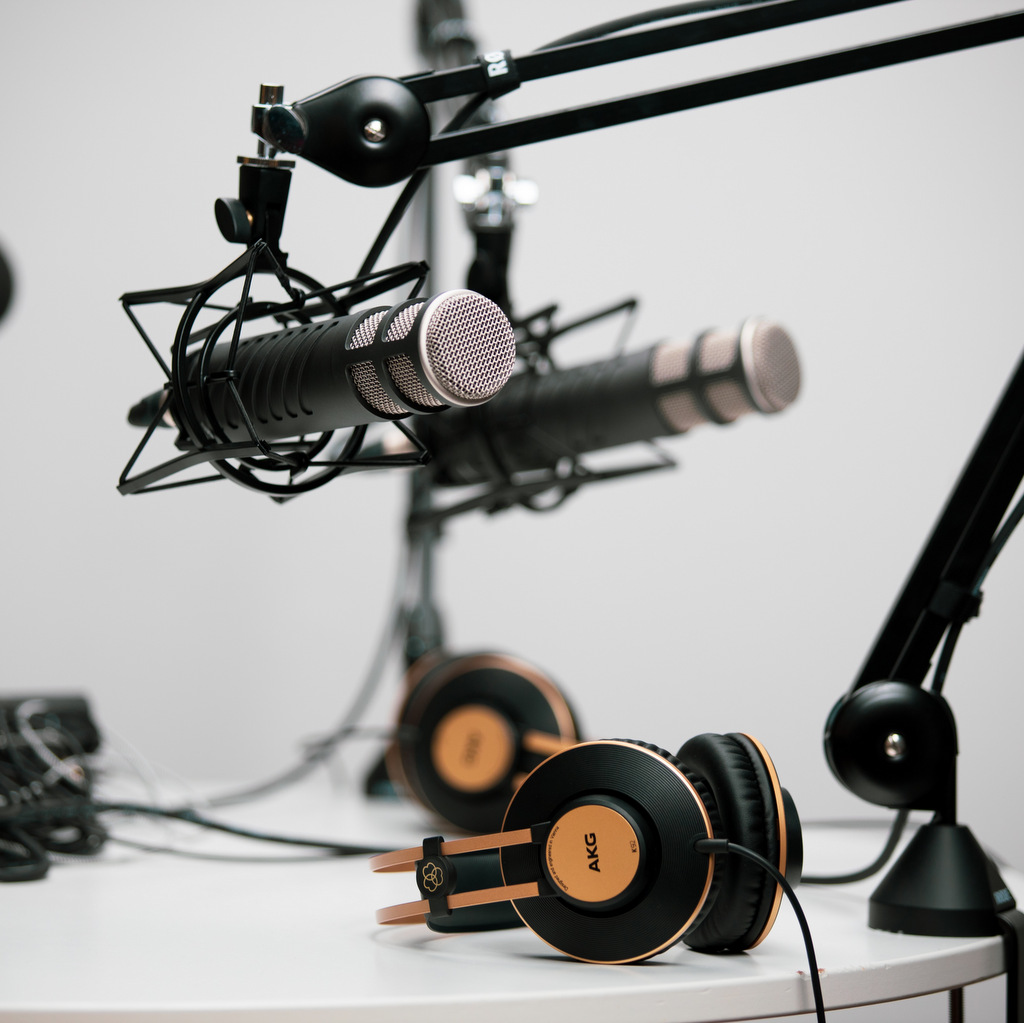Post-Interview Reflection: Honing Skills for Improving Future Recordings
These FAQs address the most common questions that people may have when it comes to planning, preparing for, conducting, and analysing interviews for various purposes. These FAQs are applicable to a wide range of industries and situations, such as academic research, radio broadcasting, podcast or webinar hosting, journalism, job interviews, and many others. The information provided also delves into specific aspects of the interview process, including planning for individual or group/focus group interviews, important considerations during interviews, effective questioning techniques, different interview styles, and the steps to review and interpret the outcomes after the interview in post-interview reflection.
What Should I do After an Interview to Reflect and Improve For Future Recordings?
In research, journalism, podcasting, and human resources, the post-interview phase is as crucial as the interview itself. Post-interviewing actions and interview reviews play a pivotal role in honing one’s skills for future recordings. This article delves into the intricacies of what should be done after an interview to reflect and improve, catering to researchers, journalists, podcasters, human resource managers, and professionals across diverse industries.
Defining Post-Interviewing Actions and Interview Review
Post-interviewing actions encompass the activities undertaken after the interview concludes. These actions include reviewing the interview recording, analysing performance, and identifying areas for improvement. Interview review, on the other hand, is a structured evaluation process aimed at assessing the effectiveness of the interview, both in terms of content and delivery.
10 Steps to Improve Interviewing Skills
#1 Thoroughly Review the Recording
Example of Post-Interview Reflection: Use playback tools to revisit specific moments, noting verbal cues, tone, and body language.
For any post-interview reflection, the cornerstone is the thorough review of the recording. This goes beyond a cursory glance—it’s about immersing yourself in the nuances of the conversation.

Playback tools become your ally in this journey, allowing you to dissect specific moments, paying meticulous attention to verbal cues, tone, and body language. As you listen, consider the subtle pauses, the changes in intonation, and the unspoken signals that often carry as much weight as the spoken words.
Moreover, it’s essential to adopt a critical lens towards your own performance. Assess not only how you posed questions but also how you reacted to responses. Were there missed opportunities for follow-up queries? Did you inadvertently steer the conversation in a certain direction? This introspection is a pathway to refining your interviewing skills. To augment this process, consider transcribing portions of the interview manually. This hands-on approach can reveal hidden patterns and illuminate areas for improvement that might have been overlooked in a purely auditory analysis.
#2 Evaluate Questioning Techniques
Example of Post-Interview Reflection: Assess open-ended and probing questions for depth and relevance.
Effective questioning lies at the heart of a successful interview. Beyond merely asking questions, it’s about crafting inquiries that elicit thoughtful and revealing responses. In the evaluation of questioning techniques, the focus should extend beyond the types of questions asked— delve into their depth and relevance. Were your open-ended questions truly open-ended, encouraging the interviewee to share insights rather than offer yes or no responses? Were probing questions tactful yet incisive, delving into the core of the matter without causing discomfort?
To enhance this process, draw inspiration from renowned interviewers. Explore the techniques employed by seasoned journalists or podcast hosts, analysing how they artfully frame their questions. This comparative analysis can illuminate new approaches and perspectives. Additionally, consider exploring industry-specific forums where professionals share their successful questioning strategies. The art of questioning is a dynamic skill that evolves, and by staying attuned to innovative approaches, you ensure that your interviews remain engaging and insightful.
#3 Analyse Response Dynamics
Example of Post-Interview Reflection: Examine how interviewees respond to different question types.
Interviewees bring a diverse array of personalities and communication styles to the table. Understanding how individuals respond to different question types is key to navigating these dynamics successfully. Take a deep dive into the responses—analyse not only the content but also the tone, level of detail, and any cues that hint at underlying thoughts or emotions. Recognise patterns in responses and tailor your future questions to capitalise on what resonates most with your interviewees.
An effective way to enhance your analytical skills in this area is to categorise responses. Create a system that identifies common response archetypes—enthusiastic, reserved, detailed, concise—and assess the effectiveness of your approach with each. For instance, if an interviewee responds well to open-ended questions with detailed anecdotes, make a note to incorporate more of these into future interviews. This nuanced understanding of response dynamics not only improves the quality of your interviews but also strengthens your ability to adapt in real-time to the unique dynamics each interview presents.
#4 Focus on Active Listening
Example of Post-Interview Reflection: Note instances where follow-up questions could enhance understanding.
Active listening is the linchpin of meaningful communication. It involves not just hearing the words spoken but understanding the nuances, emotions, and intentions behind them. During the review process, actively listen to your own responses and note instances where follow-up questions could have deepened the understanding of the interviewee’s perspective. Reflect on whether you allowed sufficient space for the interviewee to express their thoughts fully or if there were moments where you unintentionally steered the conversation away from its natural course.
To cultivate active listening skills, consider incorporating mindfulness techniques into your routine. These practices can heighten your awareness of the present moment, allowing you to be fully present during interviews. Additionally, experiment with reflective summarisation during interviews—briefly paraphrase what the interviewee has shared to ensure mutual understanding. This not only demonstrates active listening but also provides an opportunity for clarifications, fostering a more enriching dialogue.
#5 Enhance Non-Verbal Communication
Example of Post-Interview Reflection: Evaluate gestures, facial expressions, and posture for professionalism.
Communication is a multifaceted exchange, and non-verbal cues often speak louder than words. As you review your interview recordings, pay meticulous attention to your gestures, facial expressions, and posture.

Evaluate these elements not only for their professionalism but also for their congruence with the message you aim to convey. Were there moments where your non-verbal cues reinforced the spoken words, creating a cohesive and impactful message? Alternatively, were there instances of incongruence that could potentially confuse or distract the audience?
Consider enlisting the help of a trusted colleague or friend for an external perspective on your non-verbal communication. Sometimes, subtle gestures or expressions may convey unintended messages that an outsider can readily identify. Additionally, explore resources on body language interpretation to deepen your understanding of the impact non-verbal cues can have on communication. Mastery of non-verbal communication enriches the overall interview experience, fostering a connection with your audience beyond the verbal exchange.
#6 Identify Redundancies and Improvise Structure
Example of Post-Interview Reflection: Eliminate repetitive phrases and enhance the interview’s flow.
A seamless and engaging interview requires careful consideration of language and structure. As you review recordings, identify any repetitive phrases or patterns that may have inadvertently emerged. Repetition can dilute the impact of your message and lead to disengagement from your audience. Scrutinise the flow of the interview—did it follow a logical progression, or were there moments of abrupt transitions that could have been smoother?
To enhance your structural analysis, consider creating an outline of your interview. Map the key points and transitions, identifying areas where adjustments can be made for improved coherence. This visual representation allows you to pinpoint potential pitfalls in the structure and make informed decisions on how to enhance the overall flow. Additionally, explore resources on effective storytelling techniques; these principles can be applied to interviews, ensuring a compelling narrative that captivates your audience from start to finish.
#7 Gauge Interviewee Comfort Levels
Example of Post-Interview Reflection: Assess if interviewees seem at ease or strained during the conversation.
The comfort level of your interviewees significantly influences the quality of the conversation. An interviewee who feels at ease is more likely to open up, share authentic insights, and engage in a more meaningful dialogue. During the review process, pay close attention to the dynamics of comfort. Assess not only verbal cues but also subtle non-verbal indicators that may reveal discomfort or unease.
Consider creating a comfort scale to objectively evaluate interviewee responses. Note moments where the interviewee appeared relaxed and forthcoming versus instances of tension or hesitation. Reflect on the factors that may have contributed to these dynamics—was the interview environment conducive to open communication? Did your approach foster a sense of trust and rapport? Adjustments in your tone, pace, or even the setting can positively impact the comfort levels of your interviewees, leading to more authentic and insightful conversations.
#8 Consider Technical Aspects
Example of Post-Interview Reflection: Ensure recording equipment functions optimally to avoid disruptions.
In the digital landscape of interviews, technical glitches can disrupt the flow and compromise the overall quality of the recording. Ensure that your recording equipment functions optimally to avoid disruptions during the interview.

Beyond just verifying that the equipment is in working order, delve into the technical nuances of the recording. Were there instances of audio distortion or background noise that could be mitigated in future recordings?
To bolster your technical proficiency, stay informed about updates and advancements in recording technology. Familiarise yourself with the specific features of your recording equipment and explore additional tools that can enhance the recording quality. Online forums, such as Stack Exchange, offer a wealth of information and troubleshooting solutions for technical challenges. By mastering the technical aspects, you not only ensure a seamless interview process but also create a polished and professional final product for your audience.
#9 Seek Feedback from Peers
Example of Post-Interview Reflection: Collaborate with colleagues for constructive criticism.
In the pursuit of continuous improvement, external perspectives are invaluable. Seeking feedback from peers provides a holistic view of your interviewing skills and identifies blind spots that may not be evident during self-assessment. Establish a collaborative feedback loop with colleagues who can provide constructive criticism on various aspects of your interviews, from questioning techniques to communication style.
Encourage specific feedback by posing targeted questions to your peers. Ask about the clarity of your questions, the effectiveness of your follow-ups, and any areas where improvements can be made. Embrace both positive feedback and constructive criticism, viewing them as catalysts for growth. Collaborative platforms, such as Slack, can facilitate quick and efficient feedback exchanges. By cultivating a culture of mutual support and improvement, you create an environment where everyone benefits from shared insights and experiences.
#10 Continuous Learning through Workshops and Webinars
Example of Post-Interview Reflection: Attend sessions on effective interviewing hosted by industry experts.
The landscape of effective interviewing is ever-evolving, and staying abreast of industry trends and best practices is paramount. Attend workshops and webinars hosted by industry experts to glean insights into the latest techniques and strategies. These sessions provide a platform for interactive learning, allowing you to engage with experts, ask questions, and network with peers who share similar aspirations for professional development.
Consider diversifying your learning sources, exploring workshops across different industries. The cross-pollination of ideas from varied fields can infuse creativity into your approach and broaden your skill set. Additionally, actively participate in Q&A sessions during these events to gain personalised advice from seasoned professionals. Online platforms like LinkedIn Learning offer a plethora of courses on effective interviewing, covering a spectrum of topics from communication skills to advanced interview techniques.
Key Post-Interview Reflection Tips
- Utilise Technology: Leverage tools like Otter.ai for automated transcription, aiding in detailed review.
- Diversify Learning: Engage with various resources, from online courses to peer feedback, for a holistic improvement approach.
Mastering the art of post-interview reflection is an ongoing journey towards professional excellence. By diligently reviewing recordings, refining techniques, and embracing continuous learning, professionals can elevate their interviewing skills. Embrace the feedback loop, stay adaptable, and remember that improvement is a gradual process. As you embark on this journey, keep in mind that each interview provides an opportunity for growth.
Useful Post-Interview Reflection Resources
Glassdoor Interview Questions Database – A vast collection of real interview questions from various industries.
Vanessa Van Edwards Courses – Comprehensive courses on body language and communication skills.
Special Mention: Way With Words – A leading platform for professional interview transcription services, ensuring accurate and reliable transcriptions to support your post-interview analysis needs.
Remember, the journey to improvement is a collective effort, and by incorporating these tips, you’re well on your way to becoming a master interviewer. Happy interviewing!
